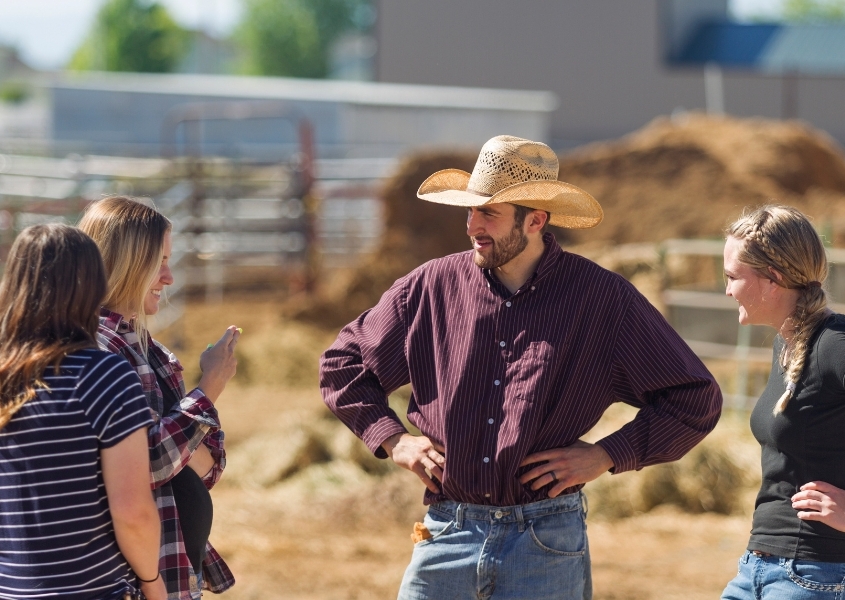Once upon a time, loyalty on a farm was simple — if someone stuck around for ten years, they were seen as committed. No questions asked. Their presence was proof enough.
But let’s be honest — that version of loyalty is no longer serving the next generation of farm businesses. Especially not in a world shaped by purpose, agility, and rapid change. Gen Z, now stepping into the ag workforce in growing numbers, brings with them a very different outlook. And it’s one we’d be wise to listen to.
The New Loyalty
Today, loyalty isn’t about staying forever. It’s about how well you contribute while you’re here. It’s about creating something better — even if your time is short.
On Australian farms, this shift is forcing a major rethink. Many family-owned ag businesses are still holding onto the belief that loyalty = tenure. But that mindset is creating blind spots and real risks — particularly when one person holds too much knowledge, too many responsibilities, and not enough support. And I’ve seen it firsthand.
The Risk of Old-School Loyalty
In more than 70% of the farming operations I’ve worked with, there’s one common thread: key-person dependency. That loyal farm manager who’s been there for years? They’re often irreplaceable — not because of their brilliance, but because nothing has been documented.
The danger? When they leave (and they eventually will), the farm is left scrambling. Processes fall over. Compliance is missed. And worst of all — trust in the business takes a hit.
This isn’t loyalty. It’s fragility in disguise.
The Rise of Purpose-Driven Contribution – New Loyalty
Gen Z wants to work where values come first. They’ll show up for a mission. They’ll stay if they’re growing. They’ll give you their best if they feel seen and supported.
And even if they move on after two or three years, they’ll often leave behind something better than they found.
Take the example of a farmhand who introduced QR-coded machinery logs and a digital visitor form to streamline audit compliance. Their stint was short — but their impact long-lasting. That’s modern loyalty.

How to Build a Values-Led Farm Team
If we want to thrive with this new workforce, we have to create a workplace that aligns with who they are and what they care about. That starts with culture — not perks or paycheques alone.
Here are the values that speak loudest to this generation:
- Responsibility & Ownership
Let your team lead. When people feel accountable, they perform better — and take pride in their work. - Continuous Improvement
Build a farm culture where everyone has a say in making things better. - Transparency
Share the why behind your decisions. Trust grows in the open. - Work-Life Balance
Burnout doesn’t build loyalty — boundaries do. - Growth Mindset
Make space for development — short courses, field days, or rotating responsibilities. - Community Impact
Young people want to know their work matters. Get them involved in your local initiatives.
5 Practical Steps for Modernising Loyalty on the Farm
Want to reduce dependency and boost real contribution? Here’s where to start:
- Run a Dependency Audit
Use our FREE Key Person Dependency Checklist (Attachment) to spot risk areas. - Document Everything
SOPs, checklists, login info — no role should live inside one person’s head. - Encourage Peer Learning
Create a buddy system or mentorship loop to share knowledge across the team. - Celebrate Impact, Not Time
Honour achievements, not anniversaries. - Support Growth, Even If It Leads Elsewhere
Some of your best people might outgrow the farm — and that’s okay. If they’ve left it better, that’s loyalty.
Let’s Stop Saying “Forever”
Loyalty today isn’t about hanging on. It’s about letting go of outdated models and embracing contribution, systemisation, and shared responsibility. It’s about building a workplace where people don’t stay because they have to — they stay because they want to. And when they go, they leave a legacy.
So next time someone leaves your team after three meaningful, values-driven years — celebrate them. That’s not a loss. That’s progress.
Download our FREE PDF toolkit: Key Person Dependency Checklist to assess risk, improve systems, and empower your team.
Need tailored help? Book a discovery call and we’ll help you strengthen your people systems and future-proof your team.
If you found this article helpful, share it with your network to help others unlock their farming potential. Don’t forget to like and follow us on social media for more insightful tips: Facebook, Instagram, and LinkedIn. Let’s empower more farmers together!

 Enable Ag
Enable Ag Enable Ag
Enable Ag
